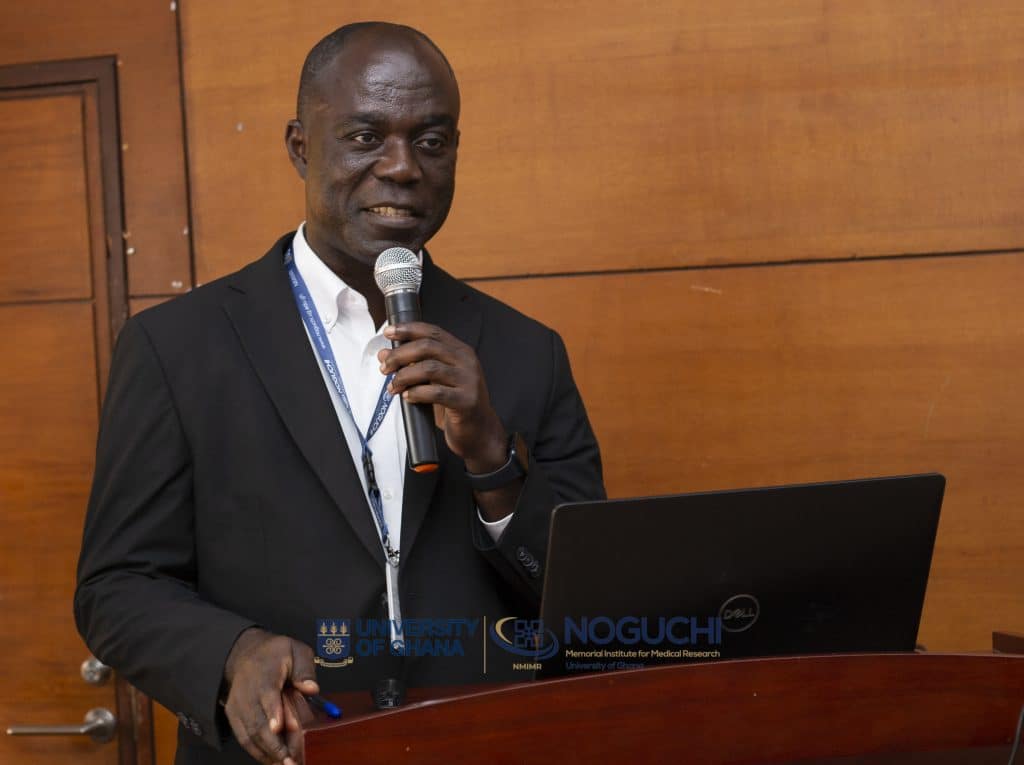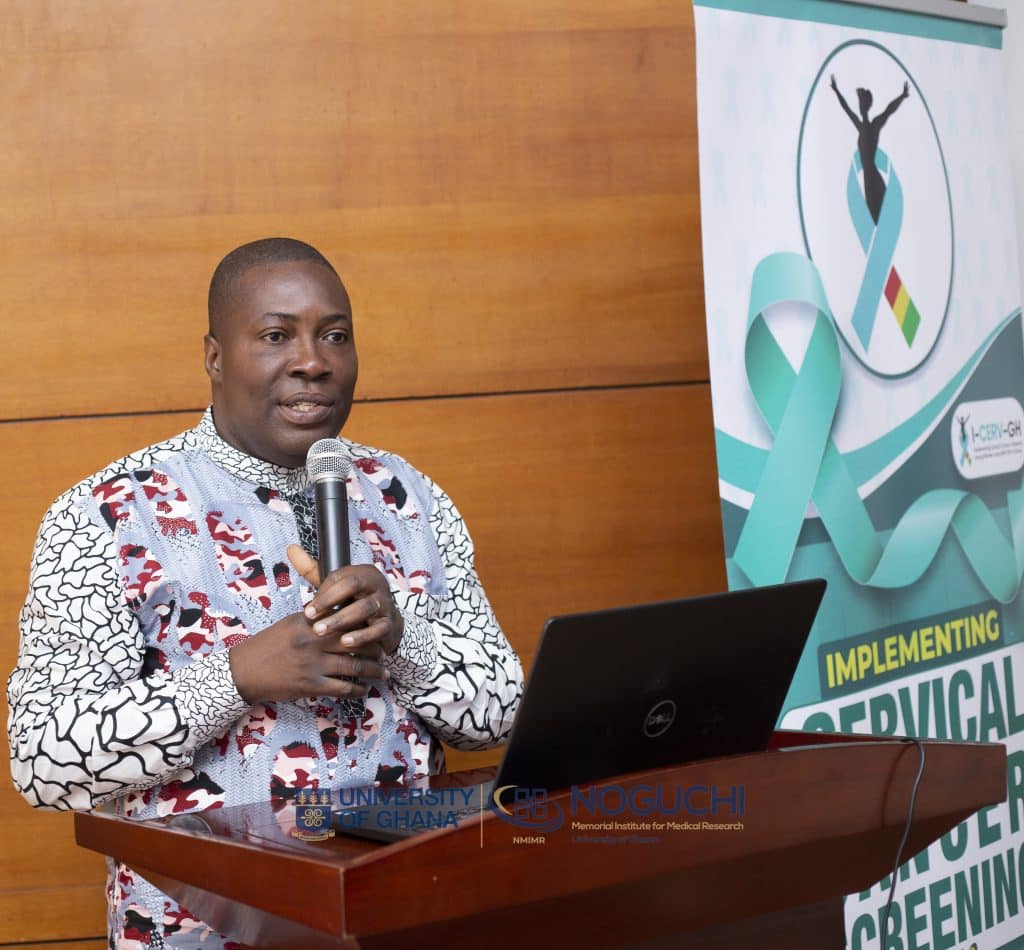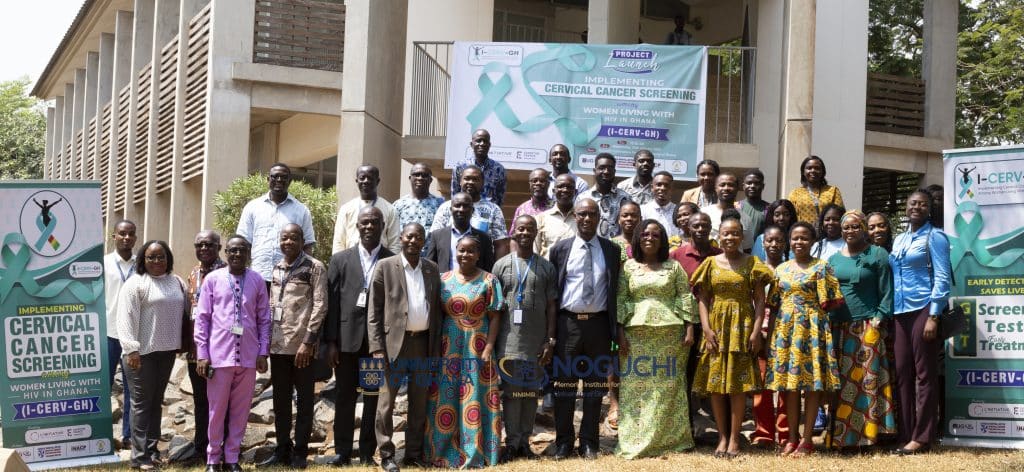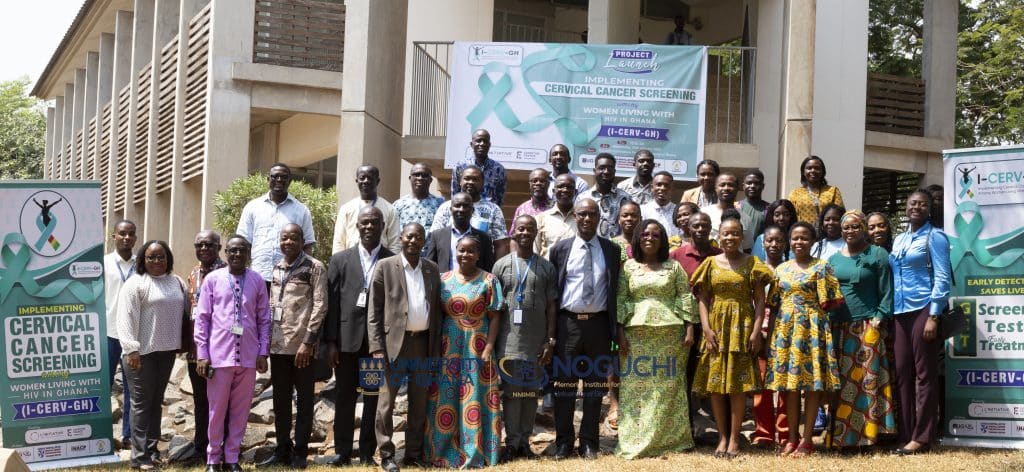“90% of cervical cancer deaths worldwide come from Africa, and HIV patients are six times more likely to develop the disease”, Prof. George Boateng Kyei, Associate Professor of Virology, NMIMR, has revealed.
Following this, the Institute, in collaboration with the National AIDS/STDs Control Program, the National TB Control Program, and the Cervical Cancer Prevention and Training Centre at Catholic Hospital, Battor, launched the project, titled “Implementing Cervical Cancer Screening among Women Living with HIV in Ghana,” (ICERV-GH) on January 24, 2024 to address the healthcare challenge of inadequate cervical cancer screening among women.
The project, I-CERV-GH with funding support from Expertise France through L’Initiative, aims to integrate routine cervical cancer screening for women living with HIV in Ghana.

Prof. George Boateng Kyei, Principal Investigator of the I-CERV-GH project
According to him, while working as an HIV physician in the United States, cervical cancer screening was one of the most crucial healthcare treatments for all women. Unfortunately, the same cannot be said for his home country, Ghana. Prof. Kyei recounted that, due to the human resources and other logistics required, women in less-endowed countries have been left behind in screening. This, he said, cannot be overemphasized and therefore called for the urgent need for an active screening program in the country for all women, especially those living with HIV.
“When I was working as an HIV physician in the US, one of the things we were careful to do for all the women in the clinic was cervical cancer screening. So, when I realized screening was not routine in Ghana, it was quite worrying, and I wish there was something I could do about it. Therefore, when our Director showed us the call for proposals from L’Initiative, it was easy to determine what to write about,” he reiterated.
For the successful implementation of the project, Prof. Kyei pointed out the need to train nurses from the clinics to do the screening, visual inspection of the cervix, and treatment of early lesions while making effective use of HPV polymerase chain reaction (PCR), which is now the recommended way to screen for early cervical cancer alongside GeneXpert machines.
“We hope to provide evidence that CC screening can be integrated into routine HIV care if nurses are trained to take charge of the screening using validated and simple treatment protocols,” Prof. Kyei added.

Dr. Deborah Atobrah, Senior Research Fellow, Medical and Social Anthropology, Institute of African Studies, University of Ghana
The Chairperson at the lauch, Dr. Deborah Atobrah, Senior Research Fellow, Medical and Social Anthropology, Institute of African Studies, University of Ghana gave an eye-open ing key message. She pointed out the impact of stigmatization, particularly on women living with cervical cancer, and called for cervical cancer screening to be made routine, similar to breast cancer screening, in order to prevent the spread and risk of the disease.

Dr. Stephen Ayisi Addo, Programme Manager, National AIDS/STIs Control Programme
Dr. Stephen Ayisi Addo, Programme Manager, National AIDS/STIs Control Programme, said, “This project is coming in at an important time, and we seek to partner with the institutes to build evidence to guide our policies and the development of guidelines for a seamless integration of cervical cancer care for persons living with HIV. We hope this is the biggest of all the different things we are doing. By embarking on this with the other groups, we believe that at the end of the two years, we will have built enough evidence to support us in our line of duty”.

Cross-sectional view of representatives from participating institutions at the project launch
The project which will be implemented at the following clinics and hospitals: Greater Accra Region: Korle-Bu Teaching Hospital Infectious Diseases Center, Central Region: Ewim Polyclinic, Cape Coast Metropolitan Hospital and Elmina Polyclinic Eastern Region: Atua Government Hospital and St. Martin de Porres Hospital, Agomanya will gather evidence from close to 3000 patients which will be crucial for formulating a national program.
At the end, the project will also provide a manual and a document that will serve as a reference and framework for a future national program.

Group photograph of representatives of participating institutions

